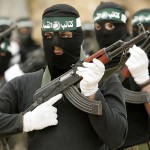Middle East Inside Line: Hezbollah's "Evidence" on Hariri Assassination; A Nuclear Reactor in Lebanon?
 Wednesday, August 25, 2010 at 9:45
Wednesday, August 25, 2010 at 9:45  Hezbollah's "Evidence": Two weeks ago, Hezbollah's leader Sayyed Hassan Nasrallah accused Israel of being behind the 2005 assassination of former Lebanese Prime Minister Rafik Hariri. He claimed aerial surveillance tapes showed Israeli intelligence had been tracking Hariri's movements before his death in a truck bomb explosion.
Hezbollah's "Evidence": Two weeks ago, Hezbollah's leader Sayyed Hassan Nasrallah accused Israel of being behind the 2005 assassination of former Lebanese Prime Minister Rafik Hariri. He claimed aerial surveillance tapes showed Israeli intelligence had been tracking Hariri's movements before his death in a truck bomb explosion.On Tuesday, UN-appointed prosecutor Daniel Bellemar, said that the "evidence", six DVDs that Nasrallah had already submitted, was "incomplete". "This can properly be done only if it is based on a complete record," Bellemare said.
Nuclear Reactor in Lebanon?: Referring to the country's electricity crisis, Nasrallah urged the Lebanese government on Tuesday to draw conclusions from current problems: Beirut should follow in Tehran's footsteps and build a nuclear reactor to Iran's Bushehr plant. Nasrallah added:
The cost of building the Bushehr reactor was less than Lebanon's investment in the electricity network. I call on the government to build a nuclear reactor to generate electricity, and then we can also sell energy to Syria, Cyprus, and other countries in the region.
On the same day, a clash between supporters of the Shi’ite Hizbullah and a Sunni conservative group killed at least three and wounded several others. It was reported that Muhammad Fawaz, the local Hizbullah commander in Bourj Abu Haidar, was slain along with his subordinate Ali Jouaz.




